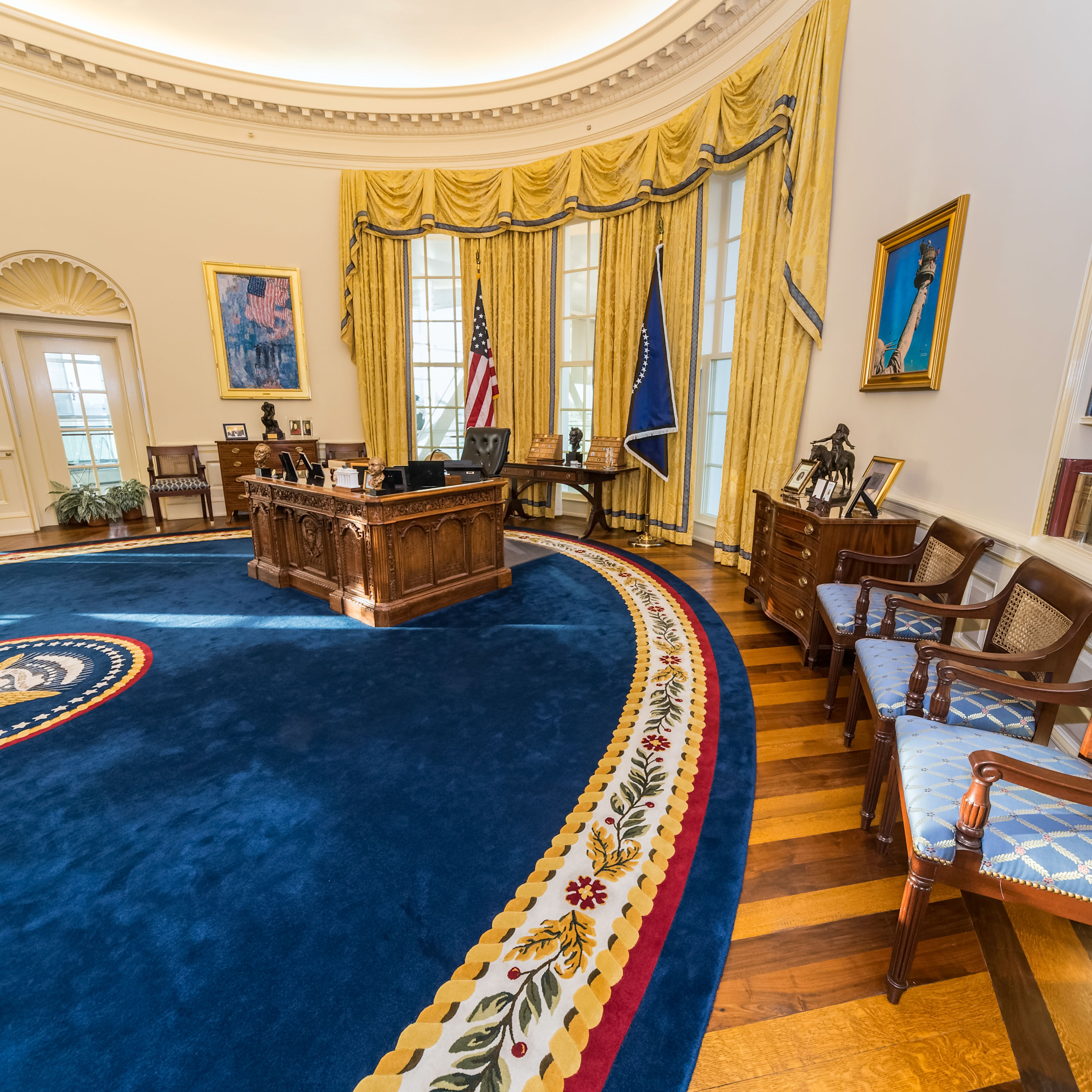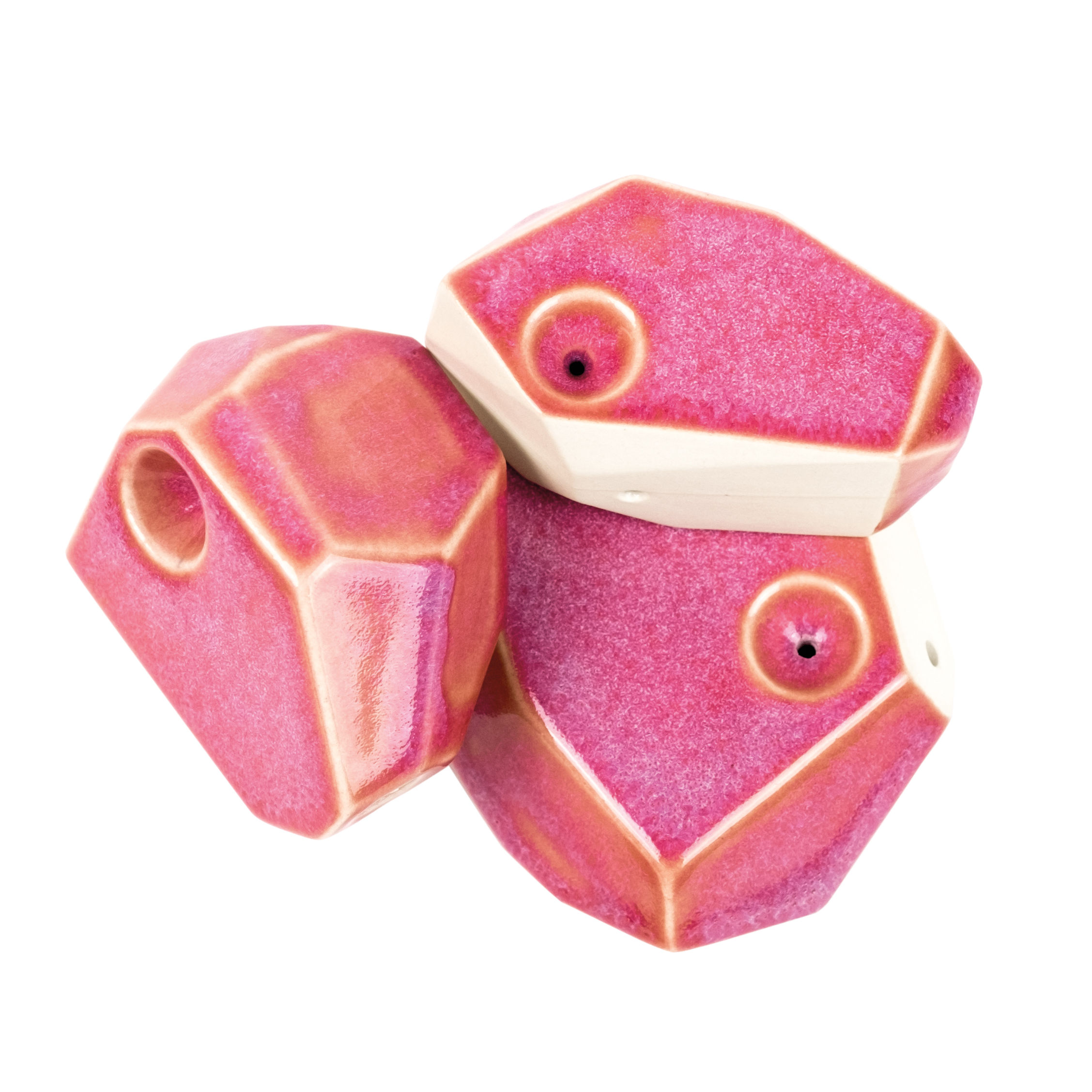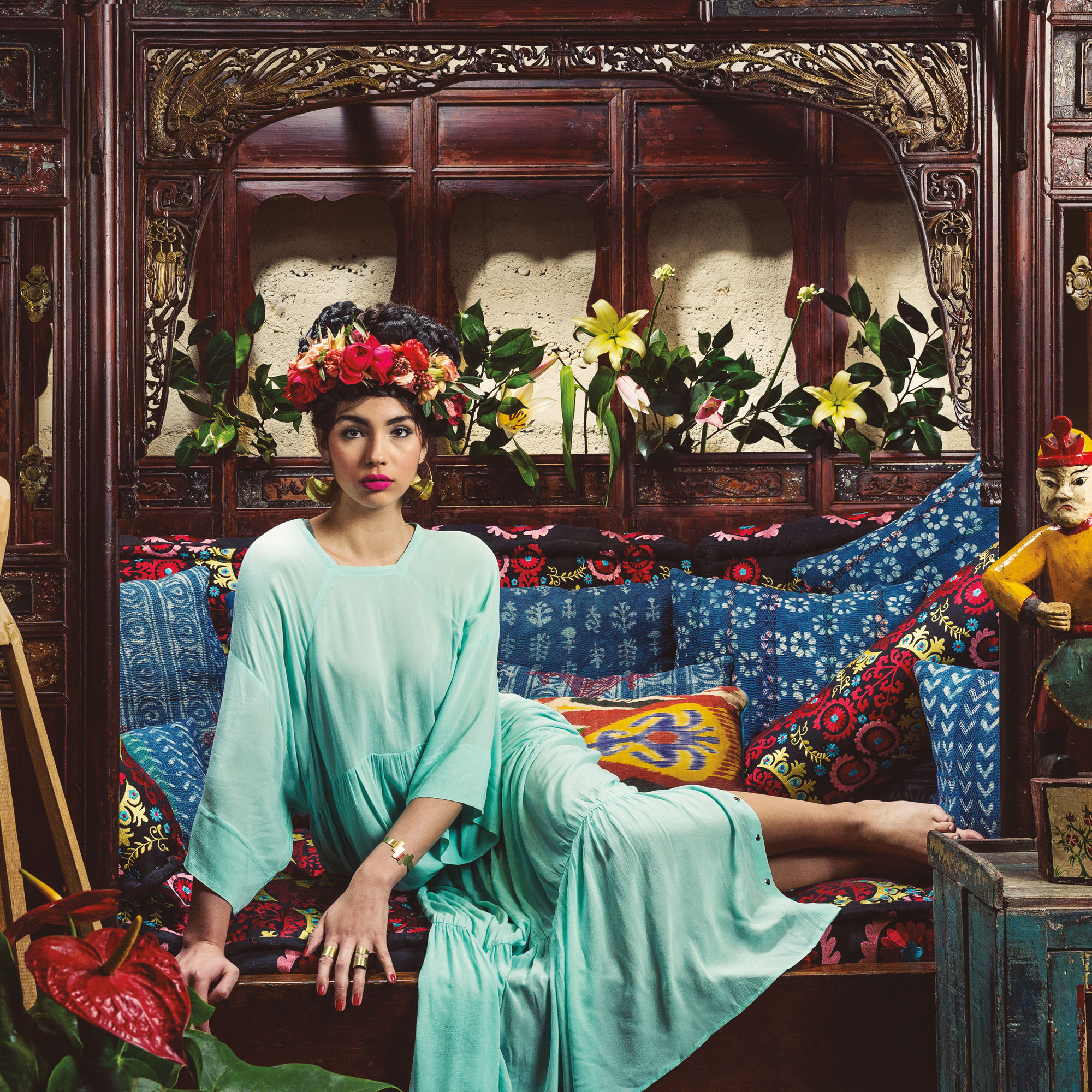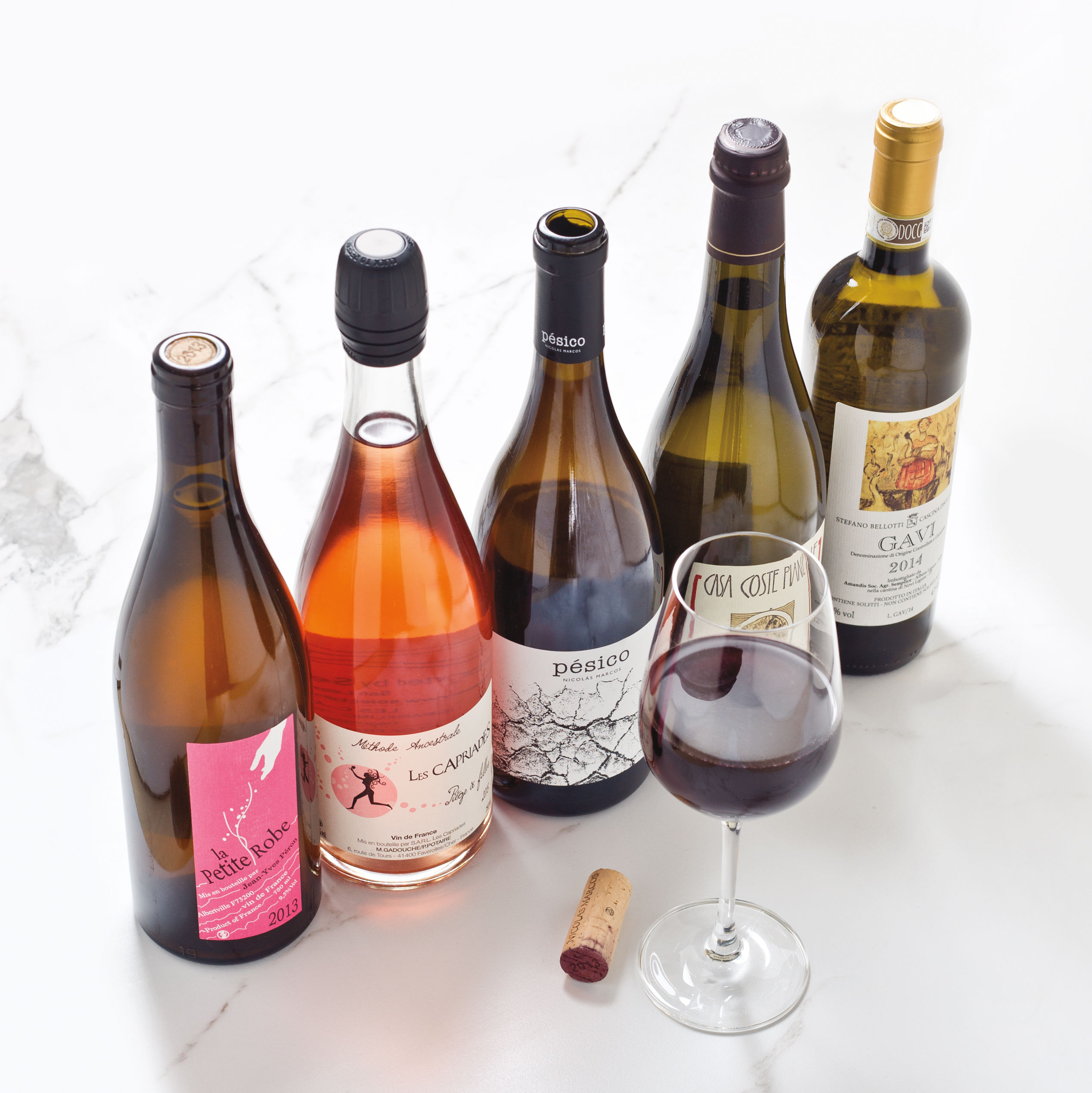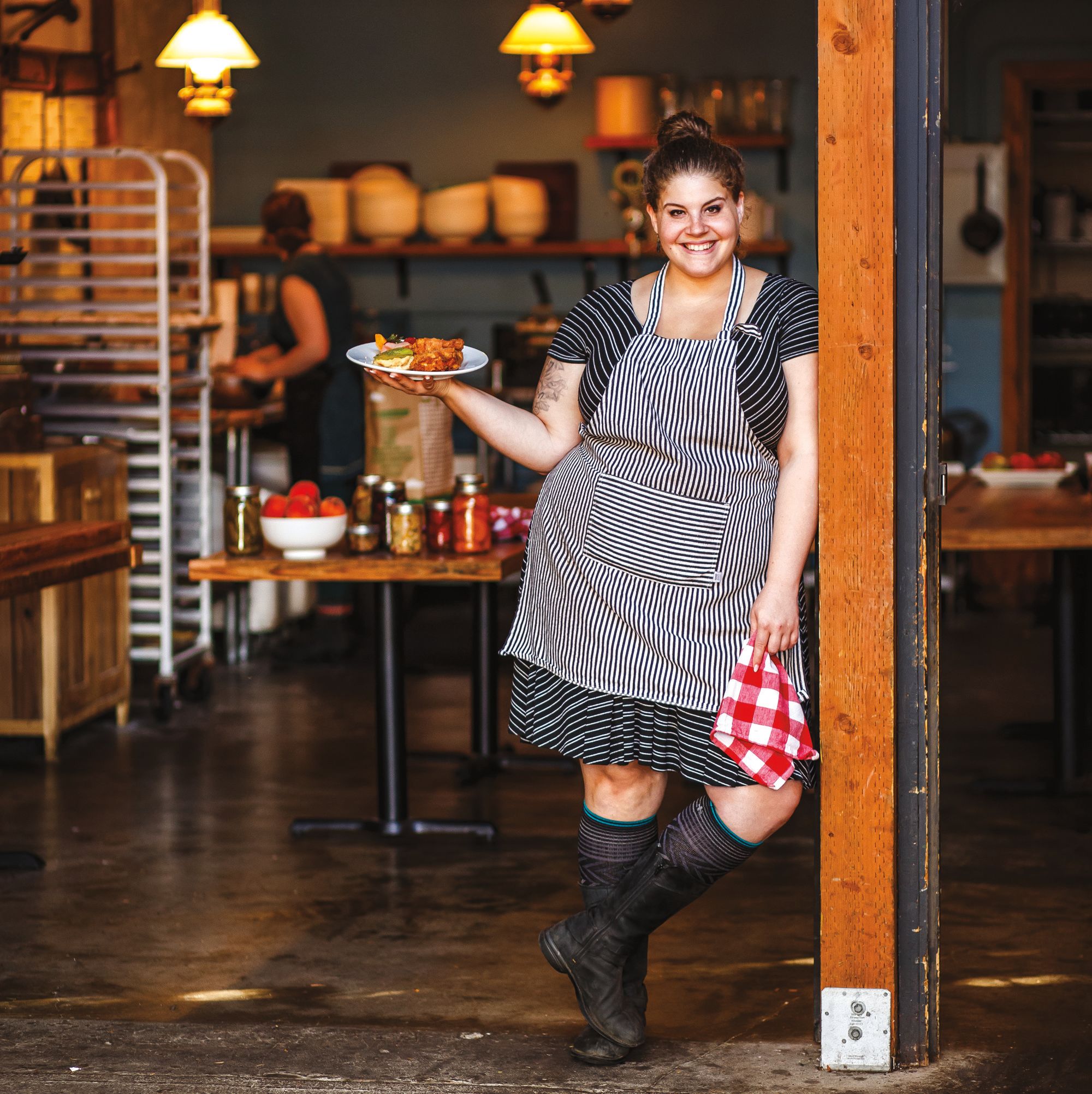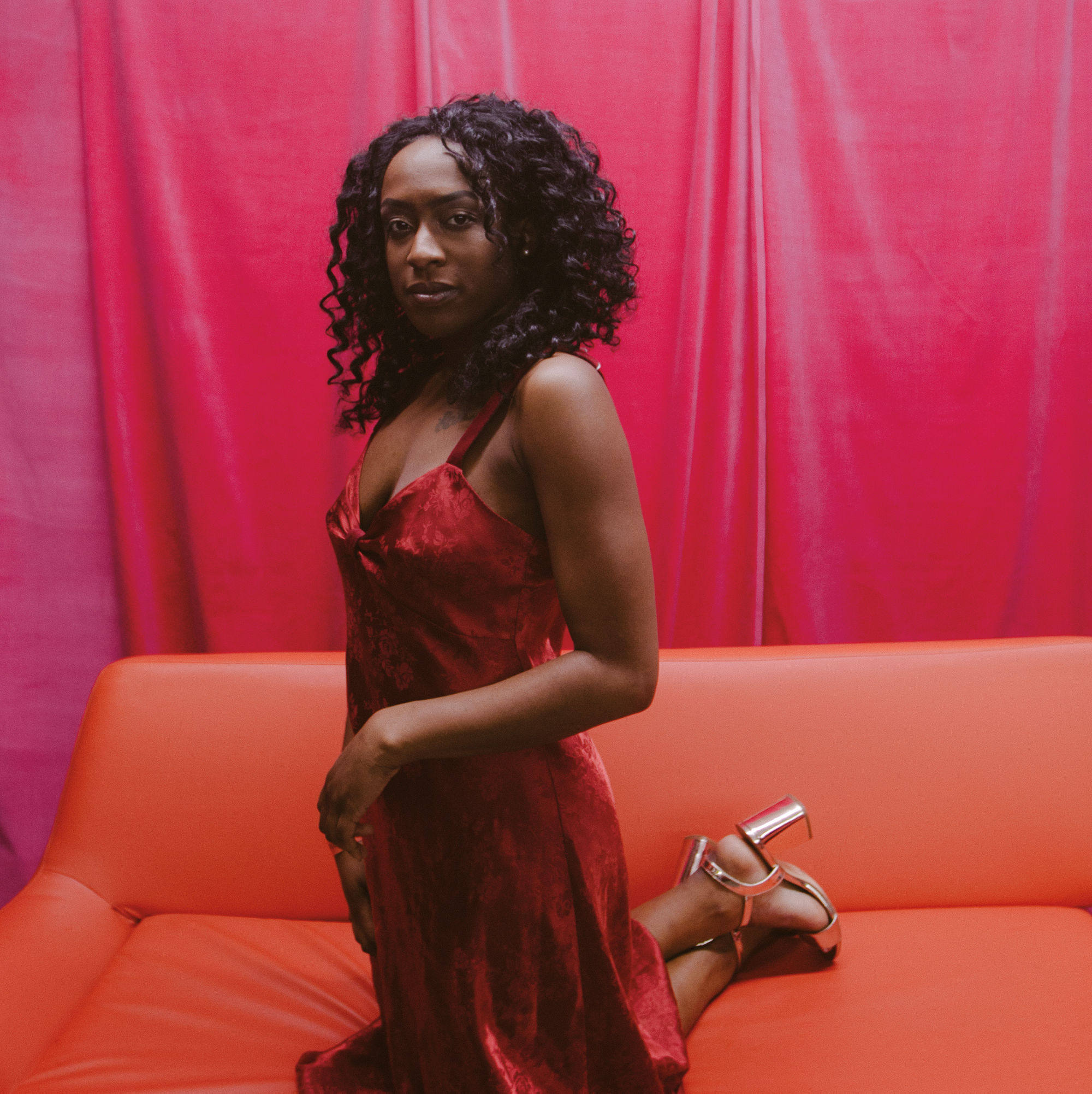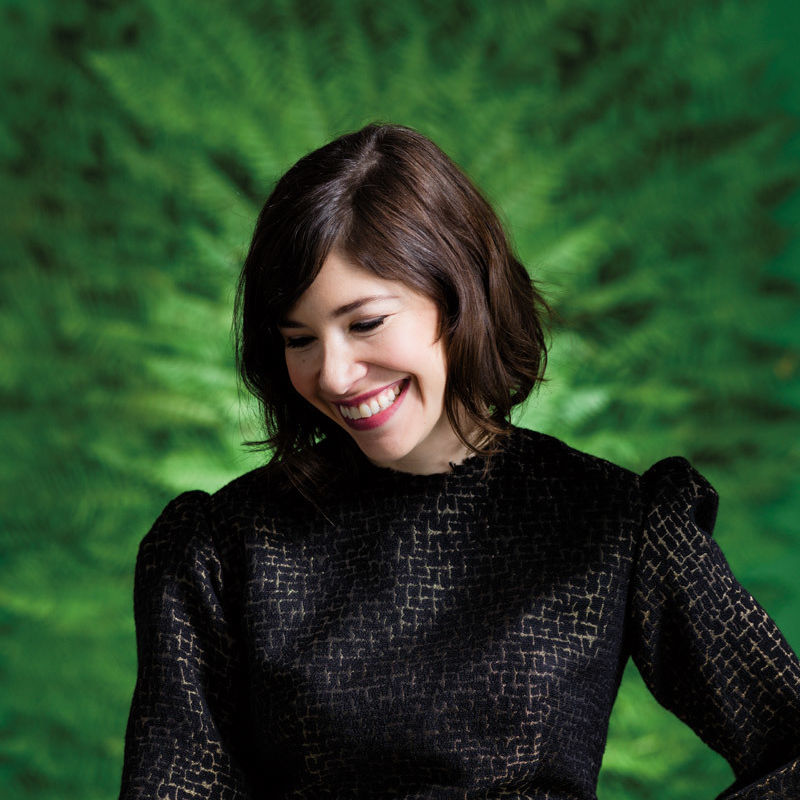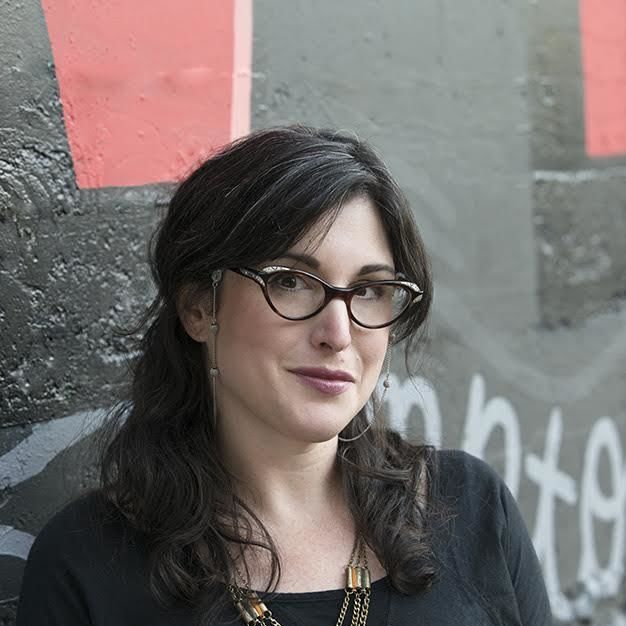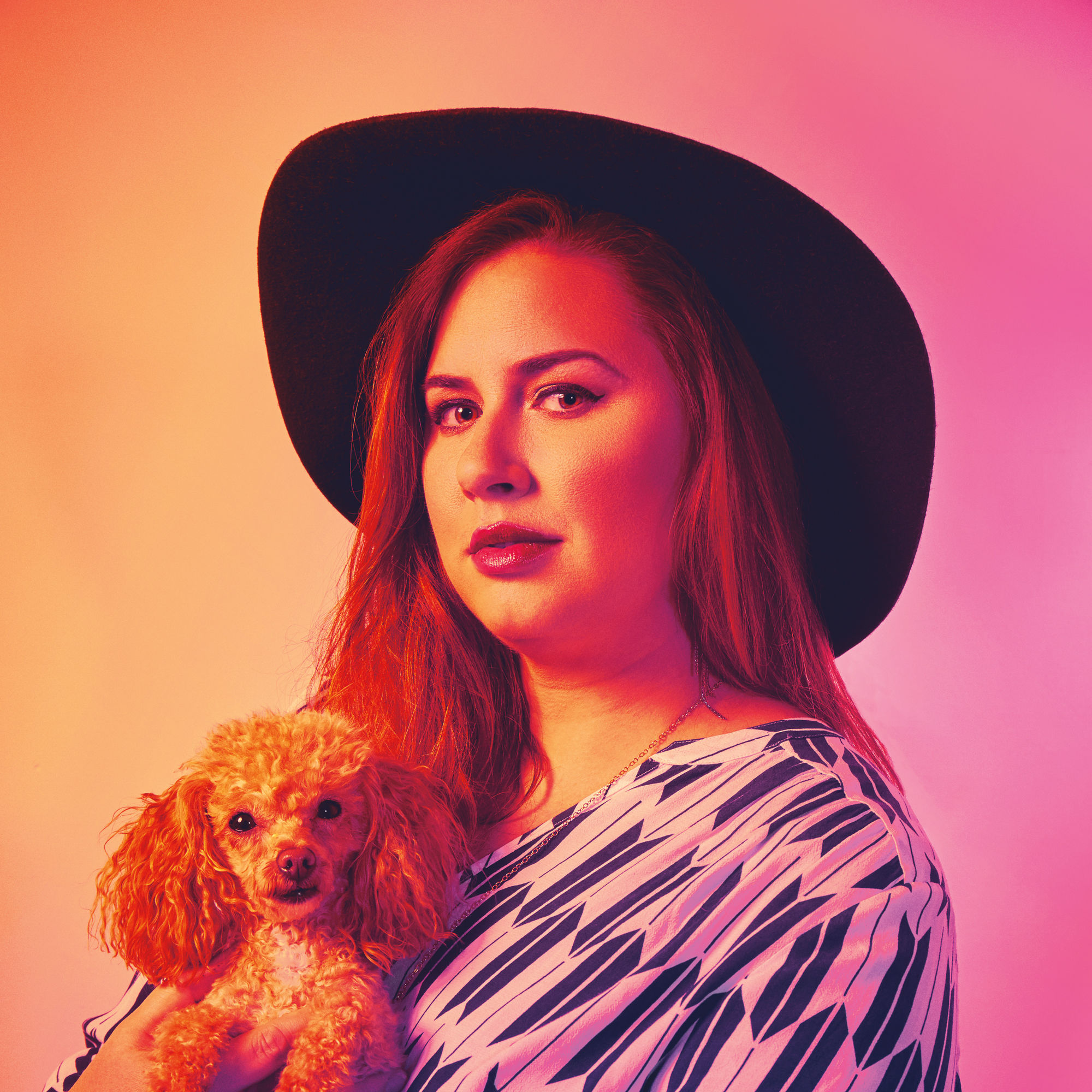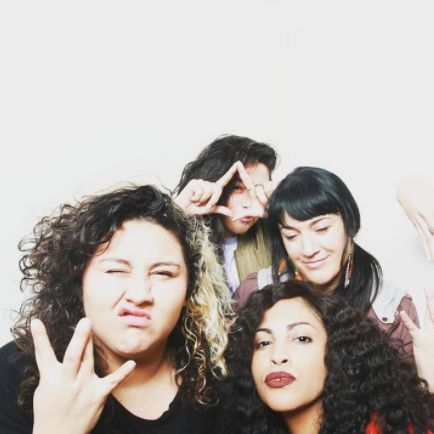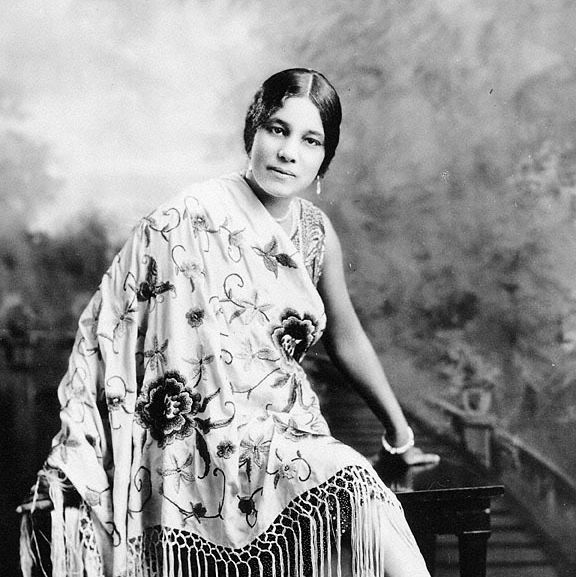One of Oregon’s Most Successful Designers Makes Modesty Garb in La Grande
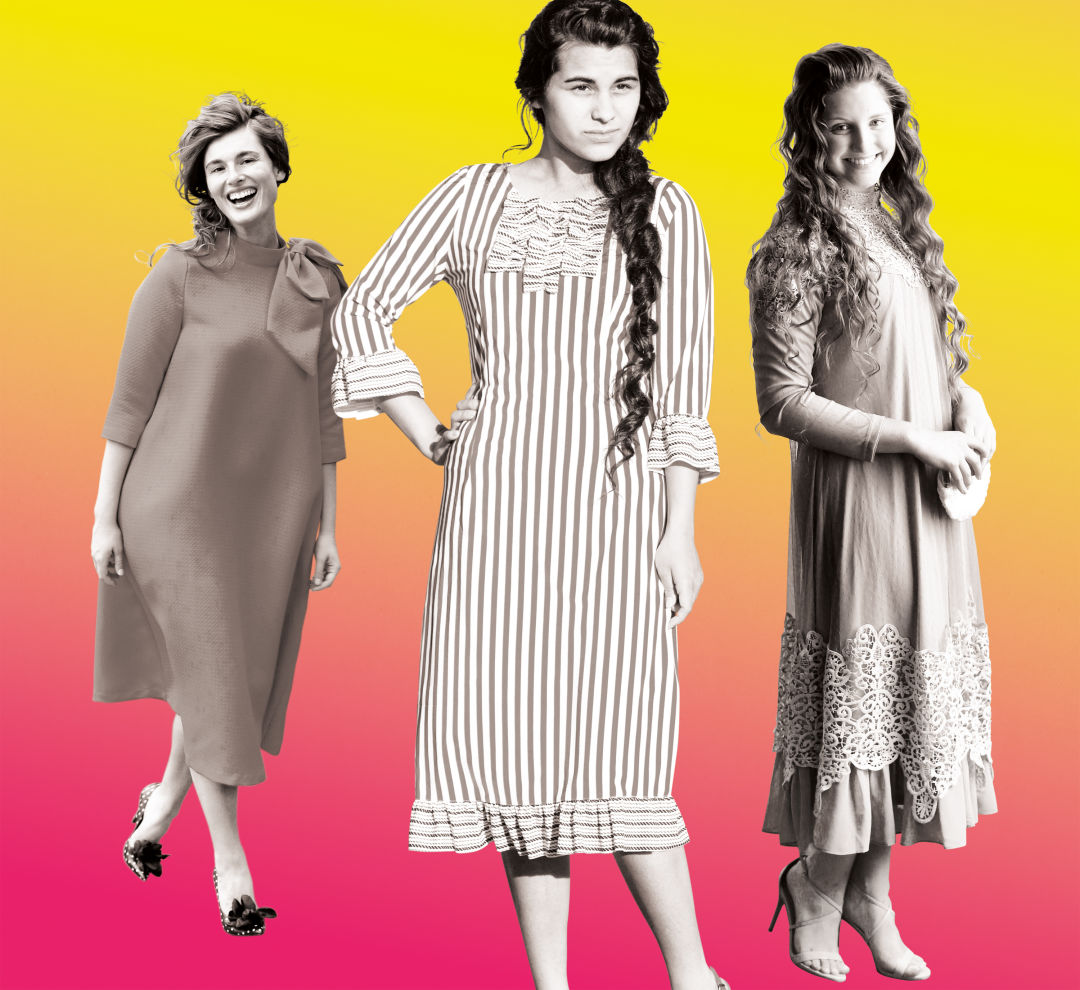
Dainty Jewell’s designs include the Parisian Poise dress, the Set and Sail ”swim dress” made with soft mesh to deter clinging, and English Rosemary dress.
Image: Courtesy Dainty Jewell's
Five days after Hillary Clinton’s loss to Donald Trump, I’m in La Grande—a city of 13,000 in northeastern Oregon, where signs for Trump and Republican gubernatorial candidate Bud Pierce still poke from roadside pastures—sitting in a plush pew at Lighthouse Pentecostal church.
Parishioners fling their arms in the air, some speaking in tongues, others dancing and shouting “Amen!” My eyes are glued to the stage, where church keyboardist Charity Jewell Walter—clad in a loose, long-sleeve, geometric-print, brown-and-black dress, ballerina bun atop her head—is rocking out with a nine-piece band.
I feel a stirring in the atmosphere / Something good is gonna happen here / God’s awesome power is drawing near.
Despite the warm handshakes that greeted me when I arrived, my city outfit (black pants, black oversize sweater, and heeled boots) have stamped “Outsider” on me here, 260 miles from a Portland convulsed by postelection protests. The congregation’s women generally share Walter’s aesthetic: long hair in perfectly coiffed updos, faces without a hint of makeup, skirt hemlines that fall well below the knee.
The scene could double for an ad for Walter’s fashion line, Dainty Jewell’s. That’s no surprise: the designer “modesty” clothing company, a brand built on gingham wrap dresses and enough lace embellishments to please all of Victorian England, got its first push from the strong market among her fellow Pentecostals. This year the company is on track to clear $2.4 million in projected sales.
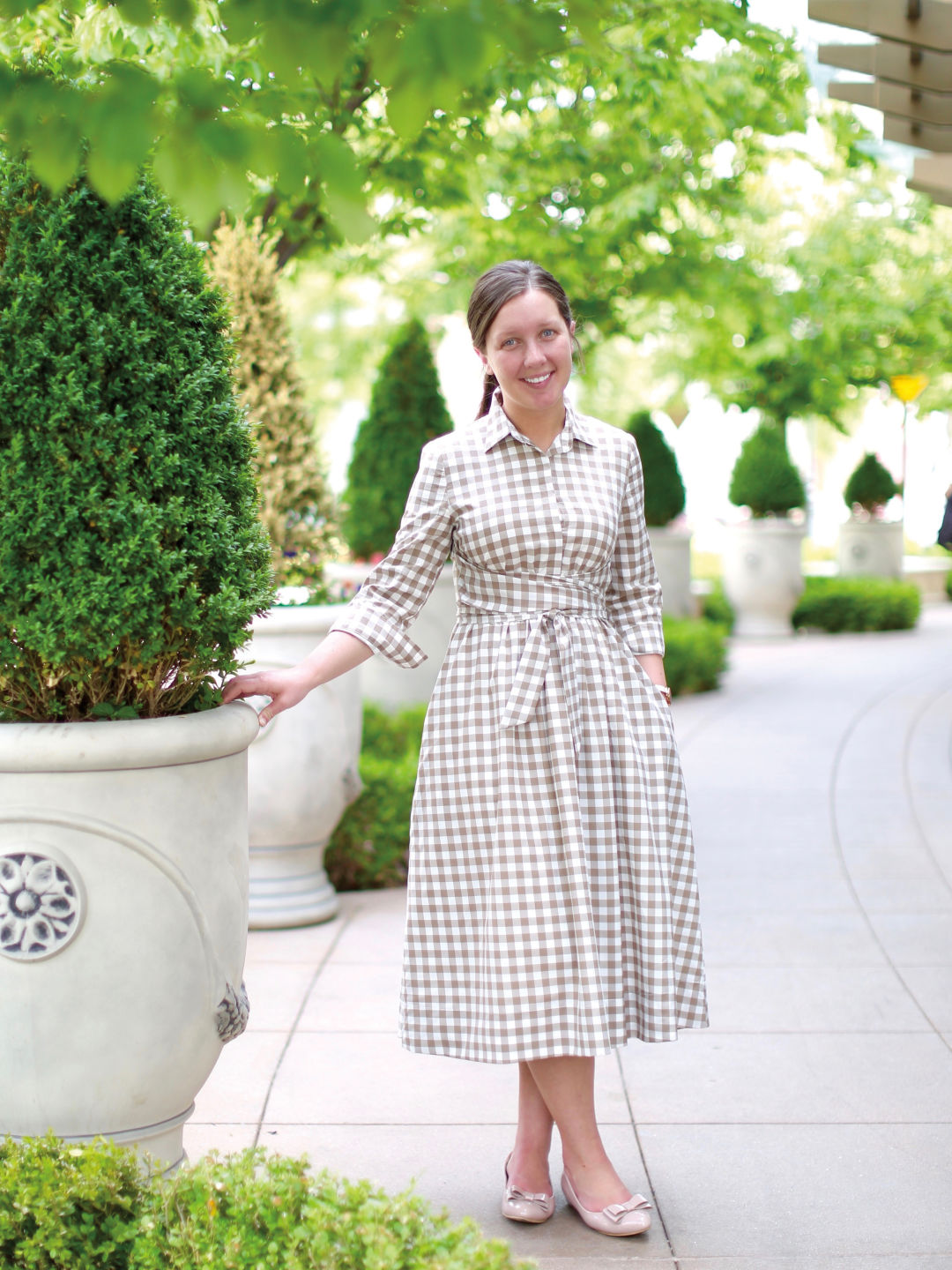
Dainty Jewell’s CEO Charity Jewell Walter models one of her own designs, the best-selling Merry-Go-Round dress, in almond.
Image: Courtesy Dainty Jewell's
That number is as impressive as it sounds. While Portland’s indie fashion scene garners international headlines (and racks up endless Project Runway appearances), most independent designers run tiny operations; many still have day jobs.
In strictly monetary terms, what’s arguably Oregon’s most successful indie fashion house is run by a 24-year-old self-trained designer creating religiously informed clothing in La Grande.
The next day I meet Walter at the Dainty Jewell’s warehouse. Women in those same buns and long dresses bustle about to a gospel playlist, weaving through rows of boxes piled two stories high, each stuffed to the brim with plastic packages of fancy frocks with names like Southern Serendipity and Hamptons Dinner Dress.
“A lot of people dress modestly and they don’t even know it,” Walter says in her warehouse loft office. “We do a lot of high necklines, we do the three-four sleeves, and below-the-knee hems. But it’s more than just the skirt and arm length. It’s keeping yourself pure for your future husband. Society pushes immodesty so strongly in the fashion world. There’s a security in [dressing modestly]. You can go out without some weirdo looking at you, but it also brings glory to God.”
In 2009, Walter was looking to make some pocket money. The 16-year-old began crafting shoe clips and headbands with delicate bows and rhinestones in her North Carolina bedroom, and selling them on the road while the family traveled the Pentecostal revival circuit with her evangelist father. Every stop brought new customers clamoring for her frilly accessories. By 2010, Walter hit on her signature full-coverage look: a vintage shift dress with long sleeves and a hemline frothing with rows of hand-sewn ruffles and bows. Orders flooded in from shoppers eager for looks that aligned with their beliefs.
That market is bigger than one might think. According to United Pentecostal Church International, the past 70 years have seen its flock explode to around 40,000 churches serving 3.75 million worldwide. Dressing modestly is part of Walter’s Apostolic Pentecostal doctrine—as it is for many faiths. Ten years ago, parishioners often had to layer off-the-rack clothing to achieve a modest look. Today, the faith-based fashion market is booming. Shoppers can surf for workout gear from Kosher Casual, a maxi dress with matching hijab from Urban Modesty, or a denim mermaid skirt (pants are rare) from Apostolic Clothing.
Once upon a time, fusing personal religious belief with a consumer brand was considered market suicide. But, increasingly, people demand to know where a company stands on issues before they fork over their cash. Progressive Portlanders swoon for local designer Anna Joyce’s “Nevertheless, She Persisted” tribute tees. Other Oregonians are using their pin money to praise the Lord.
Walter, a “Kate Spade, girly girl style” acolyte who admires Reese Witherspoon’s Southern belle–influenced Draper James brand, seems genuinely elated to combine her love of faith and fashion. Jewell’s amped up in 2013, when the designer married Jess Walter, a youth pastor at La Grande’s Lighthouse, and moved to Oregon. She found a Chinese manufacturer and completed the leap from cottage industry to full-fledged business. (“God guided my hands on Google,” she insists, noting that the Asian shop is “verified.” “It would go against our morals to use a sweatshop.”)
Dainty Jewell’s now sells dozens and dozens of designs, in 20 colorways, from size small to triple XL. It also boasts a more modern-looking knitwear basics line of flowy tent dresses that easily dovetail with secular fashion—which prompts a question. Could Jewell’s cross over?
“[Portland’s] a city of pretty varying tastes that loves comfort, and these pieces do look comfortable,” says Celeste Sipes, who owns downtown womenswear boutique Radish Underground, eyeing photos of Walter’s contemporary knit dresses. (She considered the lacy numbers a no-go.) “I want to be open-minded, but I can’t pretend that this wouldn’t give me pause. I believe women should be encouraged to dress however they want, but it brings up questions on where they stand on broader political issues. I doubt I would want to wade into these waters.”
Back in that cozy loft office—with racks of dresses that range from so ruffly they border on costume to a simple red sheath with a stylish oversize shoulder bow—politics aren’t part of the brand conversation. (Walter loves the style of Michelle Obama and Ivanka Trump.) Virtue is the tie that binds.
Jewell’s now boasts an army of social media fans and a popular faith/fashion/home blog, She’s Intentional. The company is building a 6,000-square-foot warehouse, including a showroom for customers to shop in person.
In addition to eight people in the warehouse HQ and two work-from-home moms who handle social media, husband Jess now runs the warehouse while Charity presides as CEO. As Jewell’s grows, the couple earmarks funds to funnel back to missionaries, home and foreign, and other church causes—they’re even pondering a Toms Shoes–style plan to donate dresses to the needy for every Jewell’s frock purchased.
Beyond its Pentecostal base, Dainty Jewell’s counts Jews and Mormons among its faithful. Walters mentions an uptick in orders from Saudi Arabia. I point out those may be Muslim women.
“It just shows how much [this industry] has grown,” she says, smiling widely. “It’s all God. I don’t want to sound cliché. Our warehouse is full, I’m so young, and we feel so underqualified sometimes. But God took that small little talent I didn’t even know I had and created a whole business.”

